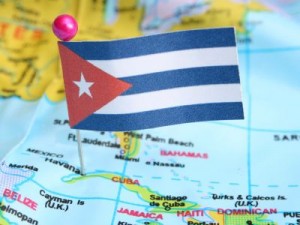HAVANA, Cuba, Feb 25 (acn) Cuba stated on Friday in Geneva that
interventionism in Libya is
unacceptable and opposed the exclusion of that Arab nation as a member of
the Human Rights
Council, the intergovernmental organ that is part of the United Nations
system.
Rodolfo Reyes, Cuba’s permanent representative at the organization,
spoke in one of the
sessions to analyze the issue, and recalled that less than 72 hours before
Cuban Foreign
Minster Bruno Rodriguez had expressed that some politicians and media
outlets incite to
violence, military aggression and foreign intervention in Libya.
Feelings are running high everywhere and I’m afraid that could lead to
serious
international and internal mistakes, warned the minister, cited by Reyes,
the National
Television Newscast reported on Friday.
We wish the Libyan people to achieve a speedy peaceful and sovereign
solution to the
situation created there, without any kind of interference or foreign
intervention, which
guarantees the integrity of the Libyan nation, said Rodriguez in his
speech, read then in
Brussels.
The ambassador stressed that the concerns that declaration reflected
became a reality and
that that State is amid a civil war, within the context of a world
economic crisis of great
dimensions, which plunges the peoples of that region and the world into
despair.
We’re all concerned about the loss of human lives and the damages
caused to the civilian
population due to the current conflict in that Arab nation, asserted the
diplomat, whose
statements were also published by the www.cubadebate.cu Web site.
He warned that the risk of taking advantage, in an opportunistic way,
of the tragic
situation to satisfy interventionist appetites, take sovereignty away from
the Libyan people
and seize its resources, can’t be accepted.
Some are already talking about a humanitarian military intervention,
which we oppose,
because, instead of solving the situation, it would complicate it even
more and could lead to
other serious implications, he said sententiously.
Reyes declared himself to be against some elements included in the
approved resolution,
which constitute what he described as “a disastrous precedent†for
cooperation in terms of
human rights, which the work of the Council should be based on.
He recalled that, from the start, when we were creating this new
Council, Cuba opposed the
clause on the suspension of a State’s membership.
In this regard, he pointed out that its inclusion in Resolution 60/251
set a negative
precedent that burdened the new organ with an additive that is
unparalleled in any other
organ of the United Nations.
Immediately afterwards, he asserted that it had never been cited until
today, but that its
use on this occasion will open the door to those seeking to legitimize
this mechanism, with
the purpose of using it selectively against countries disagreeing their
patterns.
Cuba, consequently, disassociates itself from the paragraph of the
approved resolution, he
stated.
Lastly, Reyes expressed that the island calls on calm and reiterates
its confidence in the
capacity of the Libyan people to solve their internal affairs, without any
foreign
interference, and to preserve the country’s peace, stability and sovereignty.
This is the first time that the suspension of a member of the of the
Human Rights
Commission, to which Libya belongs since May, 2010, is recommended, the
Telesur television
network reported.
The final decision in this regard will be made at the UN General
Assembly, the next meting
of which has been scheduled for March 1st in New York, specified the state
television network.












